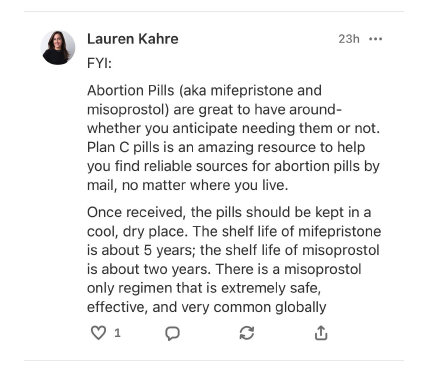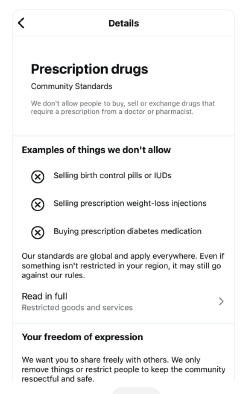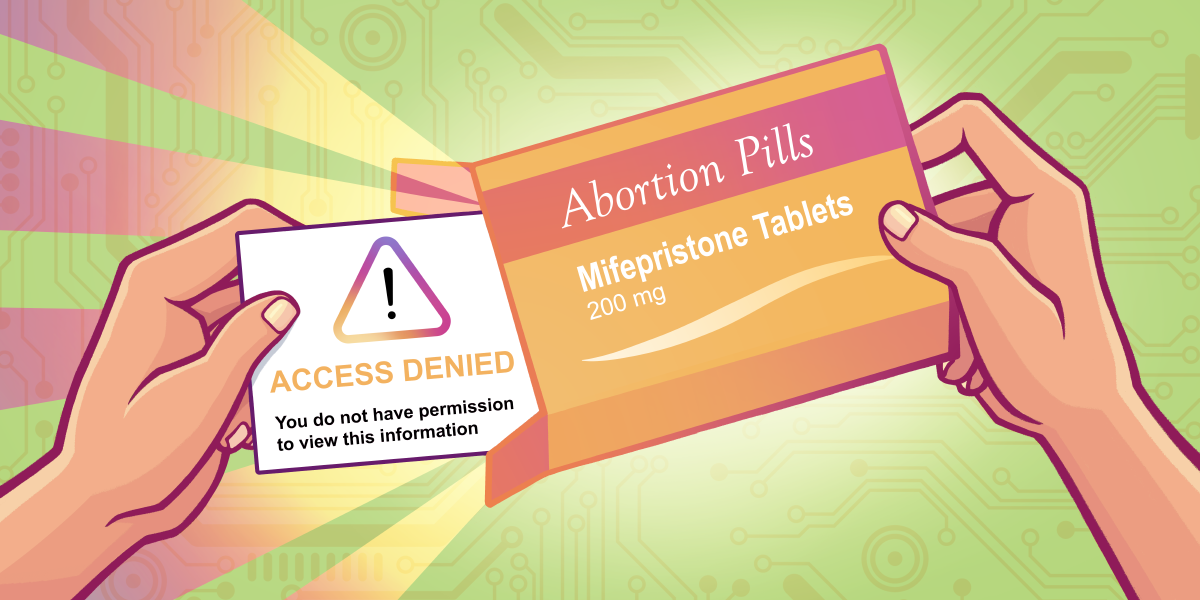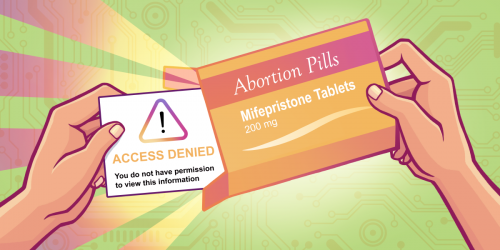BY JENNIFER PINSOF | September 15, 2025
This is the first installment in a blog series documenting EFF's findings from the Stop Censoring Abortion campaign. You can read additional posts here.
We’ve been hearing that social media platforms are censoring abortion-related content, even when no law requires them to do so. Now, we’ve got the receipts.
For months, EFF has been investigating stories from users whose abortion-related content has been taken down or otherwise suppressed by major social media platforms. In collaboration with our allies—including Plan C, Women on Web, Reproaction, and Women First Digital—we launched the #StopCensoringAbortion campaign to collect and amplify these stories.
Submissions came from a variety of users, including personal accounts, influencers, healthcare clinics, research organizations, and advocacy groups from across the country and abroad—a spectrum that underscores the wide reach of this censorship. Since the start of the year, we’ve seen nearly 100 examples of abortion-related content taken down by social media platforms.
We analyzed these takedowns, deletions, and bans, comparing the content to what platform policies allow—particularly those of Meta—and found that almost none of the submissions we received violated any of the platforms’ stated policies. Most of the censored posts simply provided factual, educational information. This Threads post is a perfect example:
Screenshot submitted by Lauren Kahre to EFF
In this post, health policy strategist Lauren Kahre discussed abortion pills’ availability via mail. She provided factual information about two FDA approved medications (mifepristone and misoprostol), including facts like shelf life and how to store pills safely.
Lauren’s post doesn’t violate any of Meta’s policies and shouldn’t have been removed. But don’t just take our word for it: Meta has publicly insisted that posts like these should not be censored. In a February 2024 letter to Amnesty International, Meta Human Rights Policy Director Miranda Sissons wrote: “Organic content (i.e., non paid content) educating users about medication abortion is allowed and does not violate our Community Standards. Additionally, providing guidance on legal access to pharmaceuticals is allowed.”
Still, shortly after Lauren shared this post, Meta took it down. Perhaps even more perplexing was their explanation for doing so. According to Meta, the post was removed because “[they] don’t allow people to buy, sell, or exchange drugs that require a prescription from a doctor or a pharmacist.”
Screenshot submitted by Lauren Kahre to EFF
In the submissions we received, this was the most common reason Meta gave for removing abortion-related content. The company frequently claimed that posts violated policies on Restricted Goods and Services, which prohibit any “attempts to buy, sell, trade, donate, gift or ask for pharmaceutical drugs.”
Yet in Lauren’s case and others, the posts very clearly did no such thing. And as Meta itself has explained: “Providing guidance on how to legally access pharmaceuticals is permitted as it is not considered an offer to buy, sell or trade these drugs.”
In fact, Meta’s policies on Restricted Goods & Services further state: “We allow discussions about the sale of these goods in stores or by online retailers, advocating for changes to regulations of goods and services covered in this policy, and advocating for or concerning the use of pharmaceutical drugs in the context of medical treatment, including discussion of physical or mental side effects.” Also, “Debating or advocating for the legality or discussing scientific or medical merits of prescription drugs is allowed. This includes news and public service announcements.”
Over and over again, the policies say one thing, but the actual enforcement says another.
We spoke with multiple Meta representatives to share these findings. We asked hard questions about their policies and the gap between how they’re being applied. Unfortunately, we were mostly left with the same concerns, but we’re continuing to push them to do better.
In the coming weeks, we will share a series of blogs further examining trends we found, including stories of unequal enforcement, where individuals and organizations needed to rely on internal connections at Meta to get wrongfully censored posts restored; examples of account suspensions without sufficient warnings; an exploration of Meta’s ad policies; practical tips for users to avoid being censored; and concrete steps platforms should take to reform their abortion content moderation practices. For a preview, we’ve already shared some of our findings with Barbara Ortutay at The Associated Press, whose report on some of these takedowns was published today.
We hope this series highlighting examples of abortion content censorship will help the public and the platforms understand the breadth of this problem, who is affected, and with what consequences. These stories collectively underscore the urgent need for platforms to review and consistently enforce their policies in a fair and transparent manner.
With reproductive rights under attack both in the U.S. and abroad, sharing accurate information about abortion online has never been more critical. Together, we can hold platforms like Meta accountable, demand transparency in moderation practices, and ultimately stop the censorship of this essential, sometimes life-saving information.
This is the first post in our blog series documenting the findings from our Stop Censoring Abortion campaign. Read more in the series: https://www.eff.org/pages/stop-censoring-abortion










